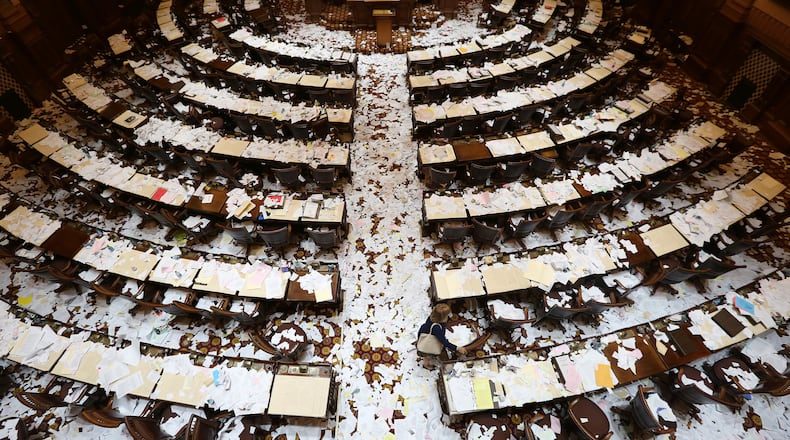One Georgia House incumbent was elected to another term in the state Legislature last year despite charges of drunken driving in the middle of the day. Another had defended the Ku Klux Klan. A third was fighting a lawsuit over a bank failure.
All easily won new terms in a state where precious few legislative seats were truly up for grabs, even as a Donald Trump-style anti-incumbent surge was rocking the nation.
David Lieb of The Associated Press crunched the numbers in an analysis that showed a startling result: Only 31 of the 180 state House seats featured candidates from both parties. That uncontested rate of 83 percent was the highest in the nation, he concluded.
And nearly all those incumbents who were challenged won re-election. Only a handful of legislative seats were truly at play in November.
Despite the 2016 outcome, some analysts expect more robust challenges next year, when a wave of statewide seats are on the ballot.
Before Republicans swept to power across the state in the 2000s, Georgia voters had a history of voting for Republicans on the presidential ballot and Democrats on the state level. Now, there’s a different sort of split.
An Atlanta Journal-Constitution poll last year found that three-quarters of Georgia voters disapproved of the way Congress is doing its job, but that a plurality approves of the way the state Legislature is performing. That divide grows even wider among Republican voters.
"The split is real. Personally, I keep thinking at some point that dam will break and the anti-Washington sentiment will overtake the state level," said Joel McElhannon, a veteran Republican strategist in Georgia, told us for a story on this phenomenon last year. "I have feared that for several election cycles, but it has yet to happen."
About the Author
The Latest
Featured




